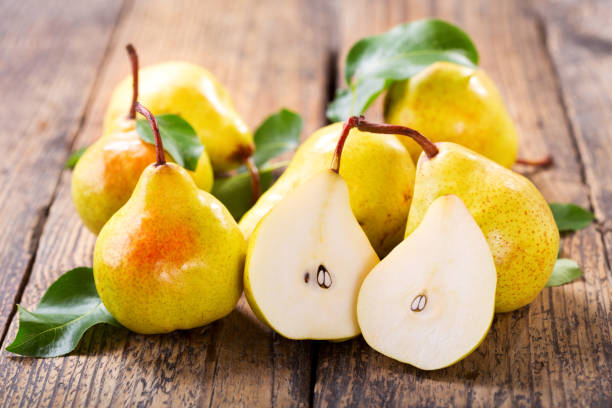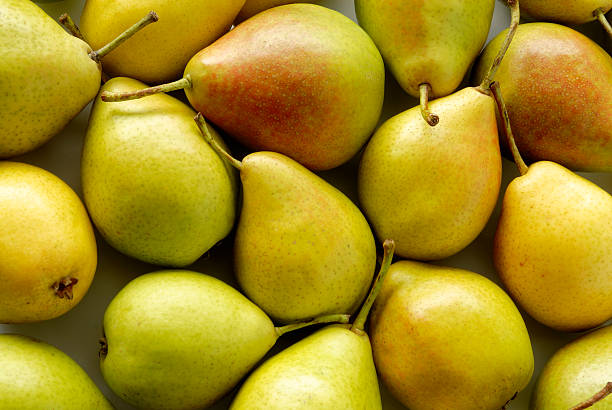Pears are a delicious and nutritious fruit that are enjoyed by many people all around the world. They are a great source of fiber, vitamins, and minerals, and they are also low in calories. In this article, we will take a closer look at the calorie content of pears and how they can be incorporated into a healthy diet.
First, let’s talk about the calorie content of pears. A medium-sized pear contains about 100 calories. This is relatively low compared to other fruits, such as bananas and grapes, which can contain anywhere from 120 to 150 calories per serving. Pears are also a good source of fiber, which can help you feel full and satisfied for longer periods of time.
In addition to being low in calories, pears are also a good source of vitamins and minerals. They are a particularly good source of vitamin C, which is important for maintaining a healthy immune system, and vitamin K, which is important for blood clotting. Pears also contain smaller amounts of other vitamins and minerals, such as vitamin A, vitamin E, and potassium.
Pears are a versatile fruit that can be enjoyed in a variety of ways. They can be eaten fresh, canned, or dried, and they can be used in a variety of recipes, such as pies, tarts, and jams. They can also be added to salads or used as a topping for yogurt or cereal. Pears are also a great snack food, as they are portable, easy to peel, and easy to eat.
Incorporating pears into your diet is a great way to add more nutrition and flavor to your meals. Here are a few ways to include pears in your diet:
Eat them fresh: Pears are delicious when eaten fresh and can be eaten as a snack or as a dessert.
Use them in recipes: Pears can be used in a variety of recipes, such as pies, tarts, jams, and sauces.
Add them to salads: Pears can be added to salads for a sweet and crunchy addition.
Top yogurt or cereal: Pears can be used as a topping for yogurt or cereal for a delicious and nutritious breakfast.
Snack on dried pears: Dried pears make a great snack, as they are portable, easy to eat, and have a long shelf life.
Pears are also a great source of antioxidants, which can help to protect the body from damage caused by free radicals. Free radicals are unstable molecules that can damage cells and contribute to the development of certain chronic diseases. Antioxidants, such as those found in pears, can help to neutralize free radicals and reduce the risk of disease.
Pears also have a relatively low glycemic index (GI) compared to other fruits, which means they are less likely to cause a rapid spike in blood sugar levels. This can be beneficial for people with diabetes or those trying to manage their blood sugar levels.
Overall, pears are a great food option for those who are trying to maintain a healthy diet. They are low in calories, high in fiber, and provide a variety of important nutrients. They also have a low glycemic index and are a good source of antioxidants, making them a great addition to any diet.
When it comes to consuming pear, there are many ways to do that. You can eat them fresh, canned, or even dried. But, it is important to note that the calorie and nutrient content may vary depending on the way it is prepared and consumed. For example, a fresh pear has 98 calories, while a canned pear in heavy syrup may have more calories.
In conclusion, Pears are a delicious and nutritious fruit that can be enjoyed as part of a healthy diet. They are low in calories, high in fiber, and provide a variety of important nutrients. They also have a low glycemic index and are a good source of antioxidants, making them a great addition to any diet. It’s important to consider the preparation and consumption method to get the most of the pear’s nutritional benefits.

 Home
Home Health
Health Diet & Nutrition
Diet & Nutrition Living Well
Living Well More
More












